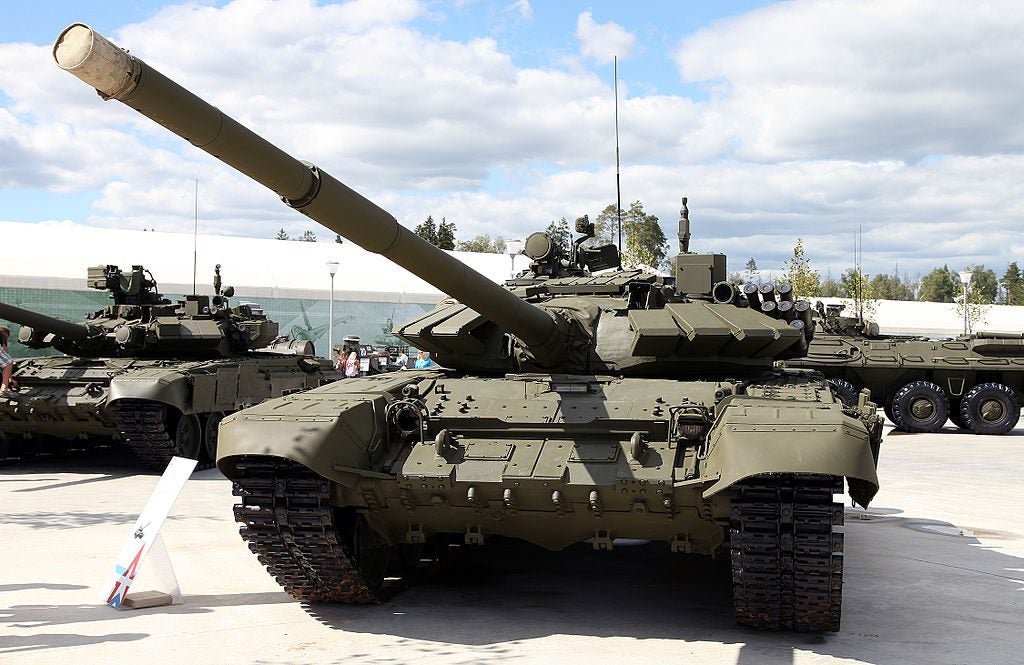Remote Control T-72s?
The Russian Ministry of Defense (MOD) announced this month that two unmanned T-72B3 main battle tanks (MBT) are being developed by Uralvagonzavod (UVZ). The T-72B3 chassis was chosen based on cost rather than the futuristic, and prohibitively expensive, T-14 Armata.
Little detail was provided in the announcement apart from stating one model: “is a crewless combat vehicle with heavy weapons, the second is a crewless combat vehicle with automatic guns” which may have lost something in the translation. It may also point to the employment of a 125mm main gun on the former and 30mm cannons on the latter in a similar fashion to the BMPT ‘Terminator’. A retrofitted variant of the BMPT entered Russian service last year.
The BMPT concept stemmed from Russian experiences in Chechnya where ZSU-23-4 ‘Shilka’ air defense vehicles were pressed into service to engage Chechen RPG teams hidden in multi-storey buildings beyond the elevation of tank and BMP main guns. The BMPT and the similar Omsktransmash developed BTR-T, a heavily armoured infantry fighting vehicle based on the T-55 chassis in much the same way as the Israeli Achzarit, were designed to survive urban cauldrons like Grozny.
The statement continued by emphasising the benefits of unmanned MBTs; “Robot tanks do not need crews. Robots without human intervention will detect enemy weapons, destroy them, [and] designate targets.” A worrying note was added that will cause debate amongst activists against autonomous unmanned systems; “Artificial intelligence of machines is able to systematise and analyse intelligence data, make decisions independently.”
It is unknown whether the newly announced UVZ platforms are a continuation of the previously announced Strum (Storm) based on the T-72B3 and designed as a robotic infantry support vehicle for urban combat. UVZ have also previously hinted at an unmanned variant of the T-14 Armata, allegedly christened the BMPT-72 ‘Terminator 3’. Again this would be a continuation of designs employed in producing the earlier BMPT platforms but may well prove too expensive for both the Russian MOD and lucrative export markets.

